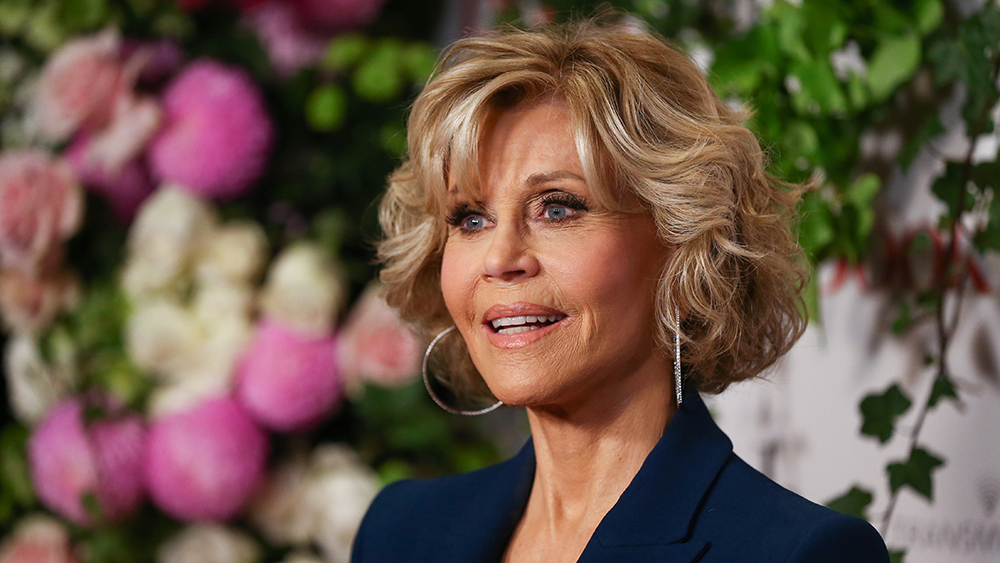Jane Fonda: One of Hollywood’s Strongest Leading Ladies
By Guy Lodge
LOS ANGELES (Variety.com) – It might sound contradictory, but perhaps the greatest testament to Jane Fonda’s six-decade career is how many people are unfamiliar with every facet of it. Not everyone who grew up with Fonda as the face of 1980s workout culture is immediately aware of the ambitious artistic extremes of her screen acting career; younger viewers getting to know her through her breezy, Emmy-nominated work in Netflix’s “Grace and Frankie” may not all be aware of her serious Hollywood history of political and feminist activism. Fonda’s name means different things to different people, though one hopes her most enduring reputation — and certainly the one netting her a career Golden Lion at Venice last year and now a Lumière Award — will be as one of Hollywood’s strongest, most spikily intelligent leading ladies: gifted at her craft, yes, but an actor who also brought her progressive personal politics to bear in her work, helping to expand and redefine the role of women in modern American cinema.
It’s not a trajectory you would have seen coming from her blithe, bouncy screen debut in the 1960 comedy “Tall Story,” playing a dimwit home economics student and cheerleader attempting to snare a college basketball star into marriage. The film was no feminist triumph, it did showcase her game, snappy comic timing, exercised throughout the 1960s in a series of variable vehicles from Period of Adjustment to “Cat Ballou” to “Barefoot in the Park” — the smart, bittersweet Neil Simon newlyweds study that made good on the chemistry she and fellow Venice honoree Robert Redford had first teased in 1966’s “The Chase.”
But it was at the close of the decade, with Sydney Pollack’s “They Shoot Horses, Don’t They?,” that Fonda showed the world what she could really do. By this point, her then-husband Roger Vadim’s loopy sci-fi sex romp “Barbarella” had made Fonda an icon, though she risked sealing herself in the public imagination as a vamp. Pollack’s despairing mirrorball of stymied Depression-era lives delved far beneath the star’s striking sensuality, allowing Fonda to expose veins of hurt, vulnerable ambition and desperation; it netted her the first of seven Oscar nominations. She went one better in 1971, deservedly taking the gold for an intense, fretful portrayal of an imperilled prostitute in the psychological thriller “Klute.” Overturning hoary hooker-with-a-heart-of-gold stereotypes, Fonda demonstrated less interest in the woman’s guarded heart than in her raging, restless head.
The result was arguably her signature performance, a mainstream milestone in modern onscreen femininity, and one that ushered in the rangiest, most adventurous decade of Fonda’s career, whether experimenting with Brechtian distance in Jean-Luc Godard’s anti-capitalist statement “Tout va bien” — released, aptly, at the zenith of her “Hanoi Jane” countercultural fame — or playing Lillian Hellman in “Julia,” filtering her feminist liberalism through a more classical lens. A second Oscar came at the end of the decade for her open, conscientious turn as a conflicted military wife in Hal Ashby’s post-Vietnam drama “Coming Home.”
The 1980s started with a zesty return to comedy in “9 to 5” and a plainly heartfelt union with her father Henry in “On Golden Pond,” but as the roles and projects dipped in vitality, so, it seemed, did her commitment: For a time, it seemed her tender, lived-in turn opposite Robert De Niro in 1990’s “Stanley & Iris” would remain her screen swansong, followed as it was by a 15-year hiatus from acting.
In 2005, the featherweight Jennifer Lopez comedy “Monster-in-Law” seemed an odd vehicle for a comeback, but she blasted into it like an actress reborn. Since then, whether rattling through Aaron Sorkin’s dialogue in “The Newsroom,” slyly cameoing as Nancy Reagan in “The Butler” or gently reteaming with Redford in “Our Souls at Night,” her delight in being back has been palpable and infectious. “I did it myself!” she yells in her film-topping, winkingly self-ironic turn as an ageing screen diva in Paolo Sorrentino’s recent “Youth.” She sure did.

